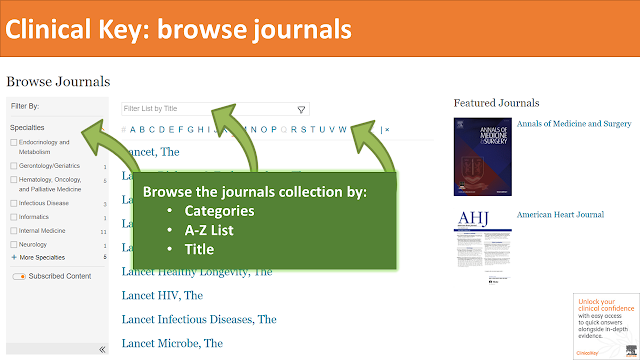Looking for the latest articles in a key topic? Want to check journals available in your specialty? Check the journal collection in Clinical Key for full-text access.
Clinical
Key is a clinical search engine, giving you access to a wealth of evidence-based
resources to support confident clinical decision-making and in-depth reading
for research and professional development.
Hundreds of
journal titles are available in Clinical Key.
Browsing Journals
Browse the journals collection by paging down on the home page to the Journals button. You can look for journal titles by category, A-Z list or keyword (via the search box).
You can also
search through the journal collection by running a search from the main search
box – select journals from the resource type and enter your search terms.
Watch this video
Take a look
at our short video for a demonstration of how to find journals on Clinical Key and access the full-text:
Access
Clinical
Key is available to UHNM staff. Access it via the Health Library NHS Resources page or log in here
via OpenAthens.
Watch this video for help logging in and activating your
account.
Need more help?
- Check our Clinical Key help page for online tutorials, videos and
articles.
- Contact the Health Library

Comments
Post a Comment